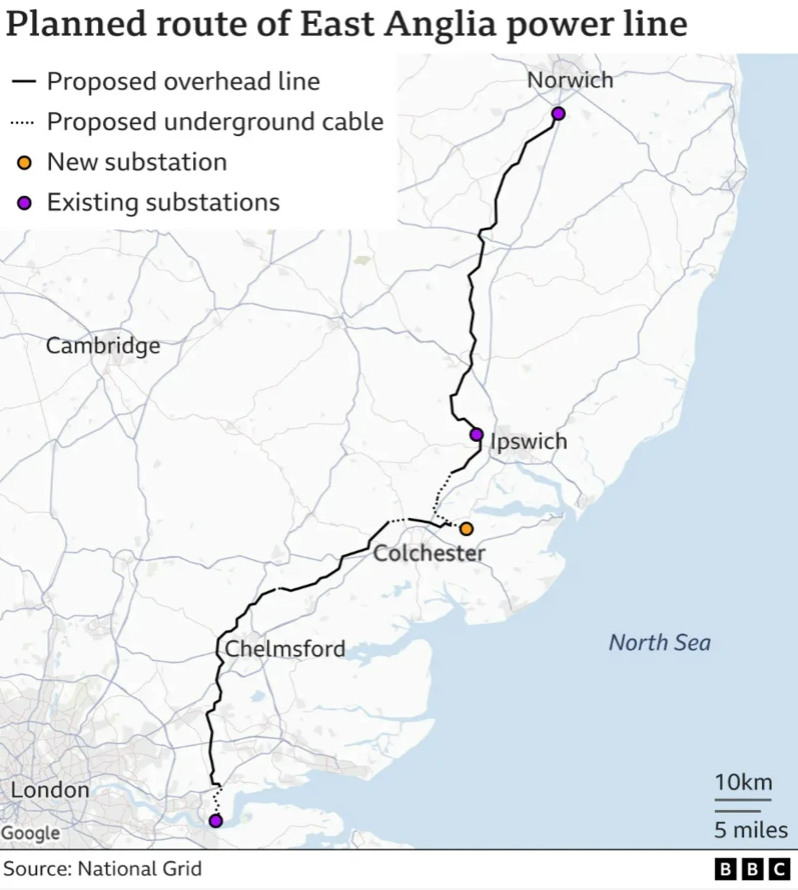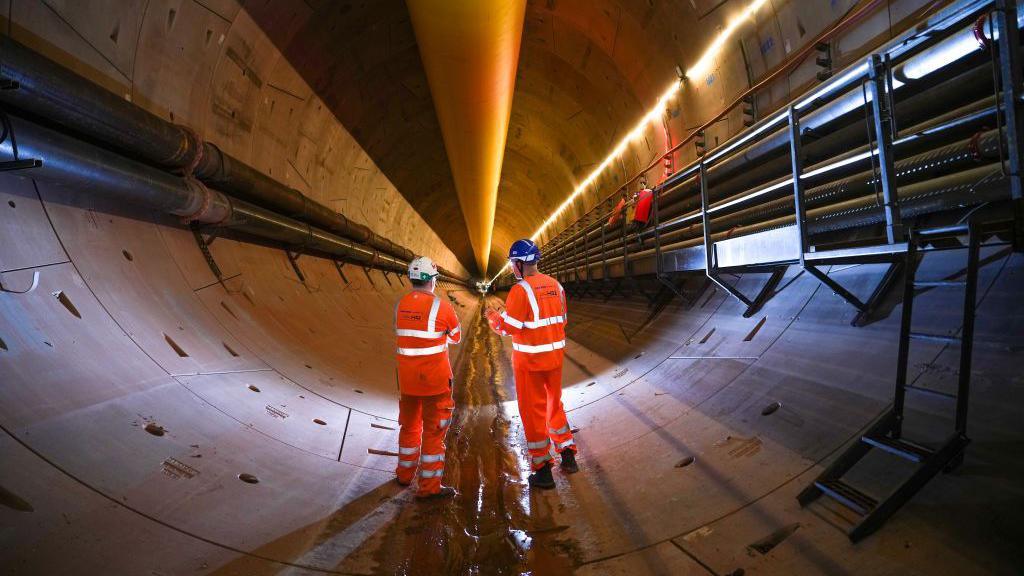Pylons not a done deal say local politicians

- Published
Local politicians say they will continue to oppose plans for a new set of pylons through Norfolk, Suffolk and Essex.
Both National Grid and campaigners insist that the decision to apply for planning permission for 114 miles (183 km) of pylons between Norwich and Tilbury does not mean that the scheme is "a done deal".
The energy supplier says it is confident of its case but local councils and a senior MP say there are still questions to ask about the project.
The planning application is expected to take 18 months to consider, with the final decision being made by the Energy Secretary Ed Miliband.

The power line would be used to carry electricity produced by offshore wind farms
The decision to apply for planning permission comes after years of argument over the plans.
But even though the government supports the need for a rapid upgrade of the distribution network and will make the final decision, campaigners insist the fight is not over.
"This is not the end of it - far from it," says the Conservative MP for Witham, Dame Priti Patel.
"A planning application must look at the deliverability of a scheme and how much it's going to cost."
Patel disagrees with National Grid's claim that it has extensively considered the cost of other options like laying cables out at sea.
"By the time they start putting shovels in the ground technology will have moved on and this will not be cost efficient for the taxpayer," she said.
"We have always argued that there are better ways to do this and we would question if those ways really are more expensive."

Priti Patel says there are better options available
'Legitimate arguments'
Conservative councillor Richard Rout, who is the cabinet member for Nationally Significant Infrastructure projects on Suffolk County Council, said: "Such a significant and impactful project should not be determined simply for being the cheapest and fastest solution.
"This is not a done deal. There are still legitimate arguments we need to make around issues like the impact of construction and what it would mean for airfields, public rights of way and we consider there to be a robust case for undergrounding where the line crosses the Waveney Valley."
Councillor Andrew Jamieson, the deputy leader at Norfolk County Council, said: "National Grid's pylon plans will cause major damage to Norfolk and Suffolk's landscape, with no clear local benefits. Our communities will continue to bear the cost while the gains pass us by."
The government has promised that those living near new energy infrastructure will receive money off their electricity bills, but Jamieson does not think that's enough.
What happens next?
The Planning Inspectorate has 28 days to decide whether to accept National Grid's planning application.
It will then appoint two or three planning inspectors whose job will be to conduct a "detailed independent examination".
There will be an opportunity for the public to submit their views, and there may well be public hearings.
The inspectorate has already set up a website, external.
The inspectors will write their report towards the end of next year and make a recommendation to the energy secretary. He will probably make his decision in early 2027.
If he approves the plans, and there are no subsequent legal challenges, construction work could start later in the year and last four around four years.
A spokesperson for The Department for Energy Security and Net Zero (DESNZ) said: "Connecting new projects will cut down on constraint payments – and households are set to receive a £2,500 off their electricity bills, over 10 years, if they have pylons nearby.
"All projects are subject to a rigorous planning process, in which the views and interests of the local community are considered."
Get in touch
Do you have a story suggestion for Norfolk?
Follow Norfolk news on BBC Sounds, Facebook, external, Instagram, external and X, external.
Related topics
- Published23 January

- Published26 September 2024

- Published14 December 2022
